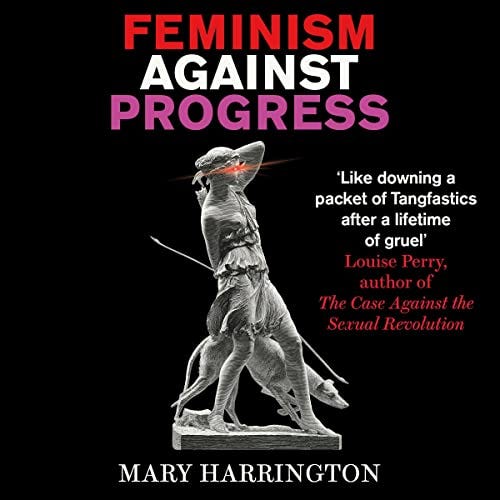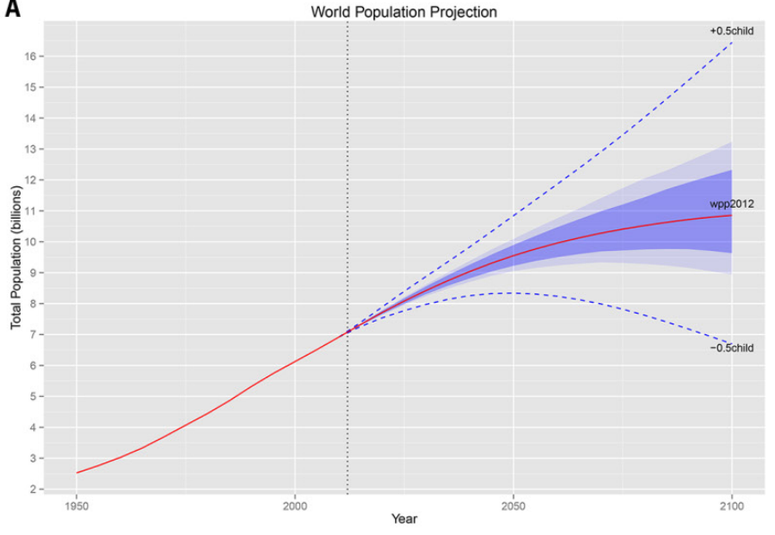No, I don’t think I’m exaggerating here. The consensus for population growth has been that the world will peak at around 9 billion towards the middle of this century with a levelling off or even a slight drop-off. The main reason for this is that we’re having fewer children across the world – the effects of which will be felt decades later.
Now, a new study in Science that the UN and others are paying lots of attention to is adjusting the projections upwards based on more recent data. Things do not look good for sustainability. There is now a confidence interval of about 70% that the population will continue to rise throughout this century, getting to 11 billion by 2100. The region with adjusted figures is sub-Saharan Africa. It has a high population growth and a high average number of children per woman. One of the adjustments is that fewer people are dying of AIDS than expected – we are making inroads into the epidemic faster than we thought. The second is that the number of children per woman is not dropping as fast as projected. For example, the average woman in Nigeria will have 5.5 children – which means the current estimates peg the population at an unbelievable 914 million by 2100.
I tend to be skeptical of single studies that try to revise long-established scientific consensus. Plus I’m not sure how we can predict population so confidently without predicting future fertility rates – which can change dramatically due to cultural shifts – all the way to at least 2070. That might just be my ignorance of demographic studies.
Still, this is a reason to worry. A population of 11 billion will stretch our already ailing global food, water and medical systems to breaking point. The implications on global poverty and oppression are also pretty bleak as more people will make systemic change harder. But there’s also a potential existential threat. Right now, population growth isn’t actually the strongest driver of global warming. That’s because most people don’t live in countries that produce a lot of emissions per person. The bulk of emissions come from a few places. But as the population grows and as countries get richer in general (and emit more per person as more people have fridges and cars), this may change. That 11 billion might cause enough emissions to make today’s environmental catastrophes seem quaint. Maybe even to the point that the planet becomes uninhabitable.
So what does this have to do with feminism? Everything. The study listed two major reasons the birth rate has remained high:
- Contraception and family planning resources have not spread as much as expected
- The cultural preference for larger families remains, driven by a lack of opportunities for women’s lives outside the home
Now, part of the first reason can perhaps be blamed on systemic poverty, corruption, lack of infrastructure and so on. But the rest is directly influenced by anti-feminism and traditional gender roles. The basic pre-conditions that are needed for an entire society to have autonomy haven’t changed – it’s the ability of women to control their reproduction in both a direct (ie. medical) and indirect (ie. cultural) level.
Not that readers from outside of sub-Saharan Africa should get all self-congratulatory about how much better “our” countries are at doing these things compared to “those” countries. There are nefarious forces from inside Western countries with deep pockets who are committed to – and effective at – influencing policy along regressive lines. Not that countries like Uganda, The Gambia and Nigeria (which have recently introduced horrible anti-LGBT legistlation) don’t have their own actors with their own agenda. They do; but being targeted in a sustained campaign is a big deal. It worked for California in Proposition 8 and can potentially work anywhere. Cough cough major religious institutions opposing contraception and abortion.
So, as if the intrinsic reasons to support feminism and gender equality weren’t enough, you might add “humanity is doomed otherwise” to the list. This is one of the most important battles in a war to the death. The war is being waged in every country in the world but it’s not being won fast enough. The stakes are the lives of billions.





0 Comments